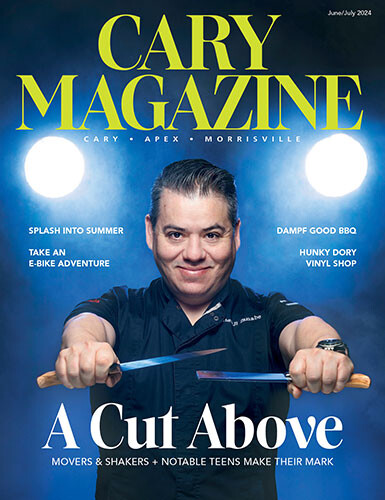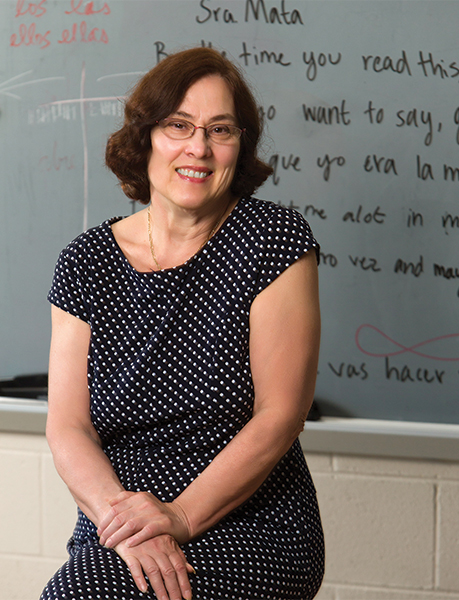Insights from longtime teachers
Car pools, book bags and homework — as a parent, you’re quite familiar with all of these. But there’s another side to the story: Teachers.
Spend a few minutes with three of Wake County’s finest … men and women who show up year after year and get the job done, despite its challenges, to educate and equip our children and benefit our community.
Read their words; put yourself in their shoes. What you discover just might inspire you.
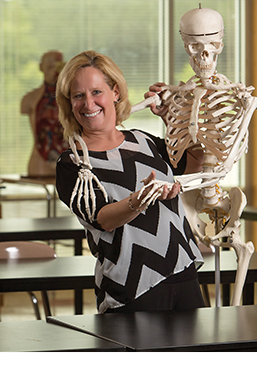 Gail Barkes
Gail Barkes
Panther Creek High School
Gail Barkes’ teaching philosophies have been honed over three decades in the classroom, and culled from colleagues’ expert advice along the way.
Advice like, You can’t put spilled milk back in the bottle. “That’s about classroom management,” she explained. Or, always do what’s best for the kids.
“I keep that in the forefront; that’s big,” Barkes said. “But the kids will tell you my favorite sayings are, ‘Are you with me?’ and ‘Make good choices.’”
Growing up in a family of educators — her parents and three older sisters taught levels from elementary to college — Barkes always knew she wanted to teach, and chose science for its problem-solving aspects. She remembers the start of her teaching career, following graduation from Appalachian State University.
“As a first-year teacher, you stay ahead on content by just one night,” she said. “Then one day you look up and say, ‘Is anybody getting it?’ and realize the need to look at things differently.
“I’m a rule follower, but all of the sudden there were shades of gray. I started thinking more about teaching strategies and instructional methods, and started to grow.”
Since then Barkes has earned a master’s degree in science education, was a state finalist for the Presidential Award for Excellence in Mathematics & Science Teaching, and served as science department head at both Panther Creek and Green Hope, during their respective school openings. She’s taught all levels of biology, from cellular through ecological surveying, and has seen traditional science lab dissections evolve into discussions on life processes, such as nutrition and transport.
Flexibility and a willingness to learn new things are key for teachers, Barkes says, as technology changes science and how it’s taught. Students, however, are always the focus.
“So much of teaching is about relationships. In the classroom, it’s a give and take of learning.No day is the same. I love when I don’t know the answer to a student’s question, because that’s a big opportunity for all of us.”
One of the first teachers to ever receive mentoring, Barkes now mentors those following the teaching path. That includes passing on more of the valuable advice she’s received, such as: Be firm and have high expectations. Be fair, and be consistent.
“Teaching used to be an island. Now it’s all about collaboration,” Barkes said. “I’m blessed with amazing colleagues who are the hardest-working, most dedicated people. I’m blown away every day with their levels of knowledge and expertise.
“Teaching is hard work, but unbelievably fulfilling and rewarding. It’s an amazing experience.”
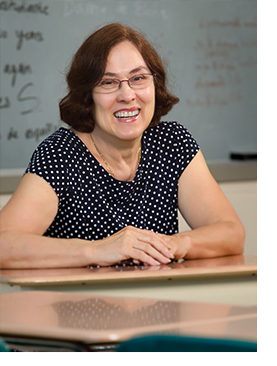 Elizabeth Mata
Elizabeth Mata
Apex High School
Students take a trip around the world each day in Elizabeth Mata’s class, via Spanish literature and language.
Mata studied in Paris, holds a degree in French and began her teaching career in Spain. She earned state teaching licensure at N.C. State, and began teaching at Apex High in 1982.
“Spanish I is particularly fun, when the students are all on the same page and excited about learning a new language,” she said. “At this age, they’re almost formed but not quite.”
Though some struggle with their studies, Mata’s convinced that all students can learn.
“You reach students with some percentage of the knowledge. Even an F means they’ve learned 60 percent of what you taught, and can still be successful if they’ve learned how to study,” she said. “I look to give them tools for the long-term, and in that sense can reach them all.”
Mata holds a master’s degree in Spanish, translator certification, is a North Carolina Board Certified teacher and mentor, and has taught English as a Second Language at Wake Tech Community College. Her passion for teaching waned only once, and she renewed it with a semester-long Fulbright Teacher Exchange to Argentina in 2001.
“I was almost burned out then,” she said. “But when I came back I remembered how much I enjoy this. I’m here by choice; that makes a big difference.”
Her positive focus also applies to teaching issues currently in the news, such as the tenure debate.
“Tenure protects us from vindictive lawsuits, not from the three things that get teachers fired, which are immorality, insubordination and poor performance,” Mata said. “To give grades fairly to all students is touchy ground. The tough teacher, the one who enforces standards, needs tenure most.
“But I focus on what we give,” she said. “The teachers I know are hardworking people trying to do what is right.”
Alongside language and literature, Mata’s trademarks are respect and authenticity.
“All students have one need in common: Respect,” she said. “I believe that’s an essential element in the classroom and in life. Respect the person, if not the action. Offer opportunities they can accept or reject. Students know if you’re authentic, and respect that even if they don’t agree with you.”
Mata loves hearing from former students about their life choices.
“I have so many good stories; it’s inspiring,” she said. “They make many contributions that are not necessarily related to academics, and teach me so much about where the world’s going.
“I love the kids, and I love teaching. If you’re happy with your job, why would you ever leave?”
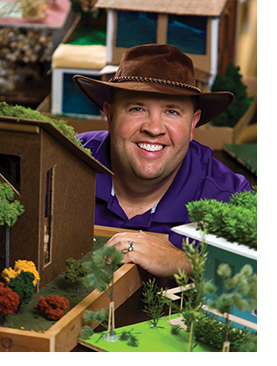 Mark Townley
Mark Townley
Holly Springs High School
Mark Townley believes in connecting the dots. For his students, that means interactive coursework that impacts their off-campus lives.
For example, his students conduct water quality testing on a local stream, and make recommendations to the state Division of Water Resources on how to improve it.
“My philosophy is to take advantage of local resources to teach global issues,” Townley said. “This is where students live; it’s personal and relevant.”
Science coursework is linked from year to year: Freshmen grow camelina, a link to important biofuels, build their knowledge as sophomores, and as upperclassmen perform lifecycle analyses of alternative fuels.
“You lose students jumping from one ‘science island’ to the next,” Townley explained. “I have the advantage of a visual and relevant subject — I actually do know why the sky is blue — and a passion for it. I’m constantly seeking opportunities to develop 21st-century learning, to find expertise and bring it into the classroom.
“I believe that if students aren’t learning, it’s my fault. The roles you provide for them let them utilize their strengths.”
Townley’s original field of study was geology. He became a teacher via the lateral entry program, which allows qualified individuals to obtain a professional educator’s license as they teach.
“That was in January 1999,” Townley said. “Someone plunked down a box of worksheets and videos and said, ‘Here’s what you need,’ but I quickly realized that was not me. I had to find my own style, and why I was there.”
That first semester, he learned even more than his students.
“I’ll never forget them,” Townley said, “and how they worked to change their lives.”
Since then, Townley has earned North Carolina Board Certification, the 2011 N.C. Science Teachers’ Association State Teacher of the Year award, and this year is a finalist for the Presidential Award for Excellence in Mathematics and Science Teaching.
He’s also part of the highly-selective Kenan Fellows program, in which teachers spend five summer weeks performing research with mentors from local universities and companies, then use that knowledge to develop lessons that benefit students and other teachers.
Townley believes in such collaborative relationships, for a whole-school approach to learning.
“The whole-school approach is how teachers should be evaluated, on their collaborative efforts and the things they do to bring learning into their schools, rather than through tests and statistics,” he said.
“It’s important for people to know that there are world-class teachers in every school in this state; I have personally seen that. Amazing things are going on in schools, with amazing opportunities for children.”
Townley also serves as a mentor to new teachers.
“That’s allowed me to be a driving force for positive change,” he said. “I want to see this school, its students and staff succeed.”
